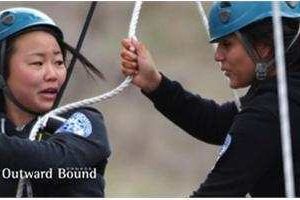
One of the greatest benefits to digital technology is also one its biggest drawbacks – ability to learn autonomously. Today, any subject or area of interest can be accessed online with a few clicks. From algebra lessons to yo-yo tricks, the barriers to learning have collapsed thanks to digital technologies at our finger tips (literally).
Unfortunately for our children, the communities in which they are learning haven’t yet adapted to this new paradigm of instruction. Although children are interacting daily with digital media through iPods, tablets, computers, and cell phones, a new report suggests they are lacking the critical thinking and ethical skills to both use the internet appropriately and to experience its enormous learning potential.
The report, Young Canadians in a Wired World by Media Awareness Network, indicates that traditional teaching models, such as “drill and kill” where the teacher talks at the students and demands all students do the same exercises, do not work well with the type of autonomous learning inherent in digital tools. However, a teacher who is willing to collaborate with their students and share in the responsibility of learning is more likely to use online tools effectively.
Technology use is viewed by many teachers – particularly younger, less experienced instructors – as disruptive to the classroom. It is seen as a distraction to students’ learning, rather than a fundamental tool to navigate a child’s natural curiosity on various academic subjects.
Surprisingly, the report also indicates that students are not as internet-savvy as one would expect, given their comfort with the online world. “They really struggle about what to type in for a Google search, and I’m always surprised at the lack of knowledge that students have about how to search and navigate online,” says one secondary school teacher in the report.
Today’s parents, who grew up having to rifle through library stacks and newspaper clippings to research a topic, inherently understand that a source of information needs to be reliable. We are, therefore, less apt to take what we read online as fact. Kids, however, whose reliance on Wikipedia is abundant, may not ever bother borrowing a library book for their school project and, instead, assume that the information written by an “expert” on the website 1812WarTheories.ca is as reliable as a non-fiction book with a bibliography of scholarly sources.
There is little suggestion in the report that school boards are racing to restructure the classrooms to better incorporate the self-learning style necessary for effective use of digital tools. Certainly, the changes will come, however incrementally. Yet, we have an enormous opportunity to expose our children to innovative thinking within the digital landscape. That’s why parents need to pick up the slack.
Parents should invest one-on-one time with their kids in front of the screen during which time they can help them learn to think critically about their online experience. Rather than letting a child wile away hours watching YouTube videos featuring moronic twenty-somethings pulling pranks, encourage him or her to research a topic of personal interest (it can be anything). Then spend time reviewing what he’s learned and determining which websites provided the best information.
Much like a parent must spend quality time teaching a child how to read, he or she should invest time teaching that same child how to process online information. This is a skill, after all, and many kids are not learning it.
About The Author:
Danielle is a freelance writer, blogger, and children’s author. She writes for business, books, magazines, websites, and kiddos. Her parenting blog offers rants & tips on family life in the digital lane. Two essential tools of her trade are coffee (for caffeinated-induced creativity), and wine (for alcohol-induced creativity) which leaves her body dehydrated but her mind buzzing – something she thinks is a fair trade-off!
Twitter: @DMBileski




